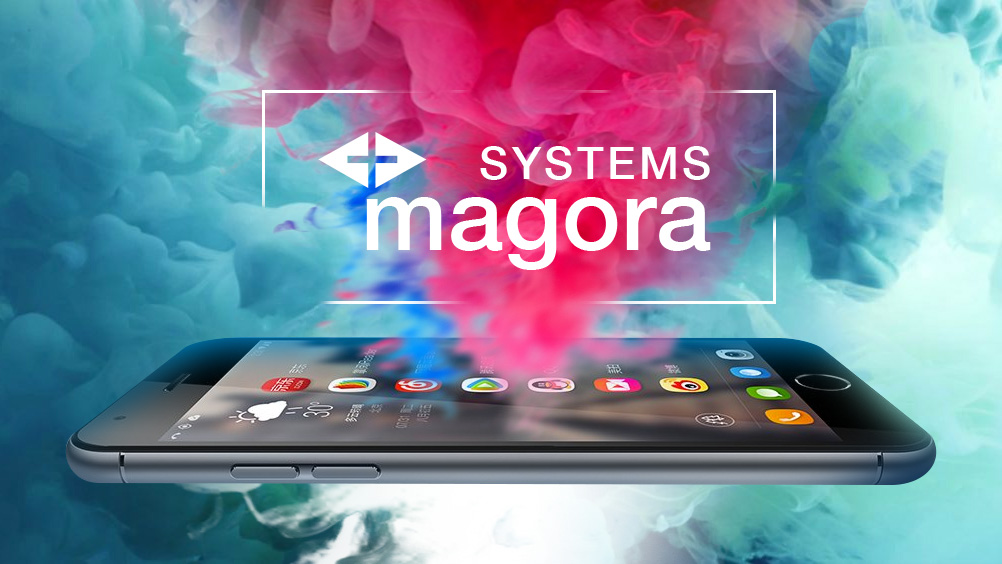21 Things Businesses Need to Know Before Hiring an App Developer
Here are 21 things all businesses need to know and think about before hiring an app developer.
Are you a business owner considering having an application developed to improve an aspect of your operations? If so, there are some factors to consider before making your choice. With the wide array of designers and developers to choose from, where do you start? Here are 21 things all businesses need to know and think about before hiring an app developer.
#1 Make sure that your business really needs a mobile app
One of the first things you need to decide on is whether you need a mobile app, or if a mobile-friendly website will do. An app cannot be viewed from a mobile browser, as it needs to be downloaded and installed to your smartphone, while a mobile website is just like a regular website, except it is adapted for a smaller screen.
Choosing between the two will hinge on the functionality and the end goals you want to achieve. An app can take advantage of the many built-in functions of a smartphone for your end users, making it a more interactive experience. Another advantage is that it empowers its users through clearly defined tasks such as checking in at a location, scanning barcodes, or participating in a video conference. These functionalities aren't as easy and sometimes aren't possible with a website. However, if your main focus is simply delivering content, then you may be better off with a mobile-friendly website.
#2 Do users want to use a mobile application?
Once you have decided that you are better off with a mobile app rather than a mobile version of your site, it is also a good idea to crowdsource information to find out how your users could most benefit from it. Talk to potential end users and ask them what they want, and if an application is something that they see value in using on a regular basis. This bears repeating: it all comes down to functionality. Your aim should be to solve a problem for your users and streamline business operations.
#3 Know what functions you want and don't want
Before you even decide to go looking for a company to develop your software, create a list of examples you like and write down your reasons for liking them. Maybe it is because of the aesthetic, the functionality, or the ease of use. Use this list as a checklist, so that once you know what you want, you can screen developers based on how their portfolio matches up with what you have in mind.
#4 iOS, Android, Blackberry, etc.: which platform will you build for?
Once you have decided to enter into the mobile app space, you need to decide which mobile platform to build your app on. Is it going to be on iOS or Android? These two are the unquestionable market leaders: one in the value of its monetisation and the other in the volume of the users on its mobile devices. To answer this question, get to know your target market and which platform they use. Since iOS devices are more expensive than Android devices, they attract users who have a higher income, meaning they are more willing to purchase paid apps and make in-app purchases. Android, on the other hand, has a larger market share because its devices are cheaper, so it dominates audiences with lower incomes and in developing countries.
The software development agency you choose should have experience building for the platform you want to build your app on. At the same time, if you want to dominate both markets, you can of course do that too. If you choose to go down this path, you still need to decide which platform to build your app on first. Once you have perfected your app's user experience on one platform, then you can move on to the next one.
#5 Develop the main purpose
Determining your app's functionality should be an essential part of its early development process. What do you want it to do primarily? What is the one process or activity that your users need most? Whether it is buying something, allowing collaboration, sending messages, or increasing productivity, your app's functionality should be its main focus. This functionality must be something that cannot be gained from your website, and should create a more optimized experience for users.
#6 Clutter control
Once you have established your main purpose, focus on that and allow the rest to fall into the background. While your app can have multiple features, that does not give you the liberty to cram it with frivolous add-ons that your users don't really need. Determine two or three key aspects and build on those. Less is always more. Cluttering with unnecessary features may slow down your software's performance and confuse your users instead of helping them.
#7 Review developers portfolios
See if the development agency in question has previously created an application in your industry. Is it something similar to what you have envisioned for your brand? Check all of the completed projects in the developer's portfolio. Is the general quality up to your standards? Does the overall design and style suit your taste? Do the samples match what you are looking for in your own? Don't just glance at a developer's portfolio. Personally download the apps and assess the functionality, user interface, and ease of use. Check out the user reviews as well to give you an idea of how people are reacting.
#8 Don't put too much stock into visual design
When reviewing a prospective developer's past work, don't write off a person if you were not blown away by the design elements. The visual design of an app is usually taken from the website and is customized according to the client's preferences. That means your taste is likely clashing with the other client, not the developer. Focus more on the functionality and overall user experience.
#9 Check references
Don't put too much faith in client testimonials listed on the website. Instead, ask for a list of previous clients that you can contact. Prepare questions that will give you insight into the agency's skills and work ethic.
#10 Look for good communication skills
Communication is an important part of the software development process. During this time, you and your chosen developer will go back and forth when it comes to planning, implementation, and requests for revisions. Look for a person or company who is responsive and communicates well. The way the person communicates during the screening process should give you an idea about if they are suitable for your entire project.
#11 Figure out how you would like the process to go
You should have a plan and a timeframe in mind even before you choose a developer. Do you want the discussions done over email or in person? From the onboarding and strategy to the design, development, marketing, and maintenance, you need to figure in each step of the process and then find out if you can streamline and refine the steps to make the whole process more efficient.
#12 Find out about the developer's process too!
This does not automatically mean that the development company or individual will work around your approach. More often, they will produce better results if allowed to work along their own creative process. Find a middle ground and figure out what process works best for the both of you.
#13 Don't go for the cheapest option
As the saying goes, you get what you pay for. Looking for the lowest price, you are likely to get someone who is not able to offer a quality final product. You risk shortcuts being taken or a general lack of skills. By skimping on your investment, you run the risk of having a substandard app which will not bring in as much business as possible. So don't think about the immediate savings; instead, think of the long-term impact an unprofessional looking app will have on your business.
#14 Plan your marketing strategy early
At this point, even though you are still in the process of development, think about how you will market your app. Does the developer offer any package to help get your app off the ground?
#15 Discuss ownership rights of the software
While it is a common business practice that you get to have full rights to an app when you hire a developer to build one for your business, it is still a good idea to have this clearly spelled out right from the start. Put it in writing through a contract to avoid conflict later on. The contract should state that the creator needs to sign over all intellectual property rights to your business.
#16 Software Testing
Ask the agency how he or she plans to have the app tested for glitches and bugs before it is ready. Ask how extensive the testing phase will be, what processes will be used, and how long it is going to take.
#17 Ask about analytics
A great developer should be able to incorporate analytics in your application so that you can track, identify, and analyze performance. The data generated from the analytics report can then be used to fine-tune and tweak the app to improve user experience.
#18 Conversion rate optimization savvy
Ask the prospective company to create an app that will require fewer clicks from its users. Instruct the developer to eliminate unnecessary clicks or taps from the design, and to create a registration form that asks for minimal information from the end user. It has been proven time and again that the more complicated forms and navigation are, the less likely users are to take the desired actions.
#19 Revision Policies
Find out ahead of time if it is going to cost you more if you request changes that were not in the original job order. Check if the company or person is amenable to revisions, and if so, what the limit will be.
#20 Ask about post-launch maintenance
The work is not finished even once you have successfully launched your app. In fact, you are only just beginning. Your app not only needs to be developed further; it also needs to be maintained. Talk to the developer and see if maintenance is part of the services offered. A great prospect should be able to fix bugs and make the necessary updates according to user feedback reviews and platform updates.
#21 Confirm deadlines
Before you commit your project to an agency or individual, make sure that they can complete the project within your timeframe, and check if they agree to the milestones of the project that need to be delivered on specified dates.
Knowing beforehand what to expect from a developer and what they should expect from you is a great way to start a harmonious working relationship. Doing so can help you get your app built right the first time, saving you time and money. For a company who is well versed in the application development process, specifically for B2B customers, get in touch with Magora Systems, bespoke software solutions and mobile application development company.
Press release distributed by Pressat on behalf of Magora UK, on Sunday 20 March, 2016. For more information subscribe and follow https://pressat.co.uk/
App Development Software Development App Developers For Hire Hire App Developer Uk Ios Development Business & Finance Computing & Telecoms Construction & Property Manufacturing, Engineering & Energy Transport & Logistics Travel & Tourism
Published By

+442038070315
info@magora.co.uk
https://magora-systems.com/
Andrew Lobel - Director
andrew.lobel@magora.co.uk
Visit Newsroom
You just read:
21 Things Businesses Need to Know Before Hiring an App Developer
News from this source:



